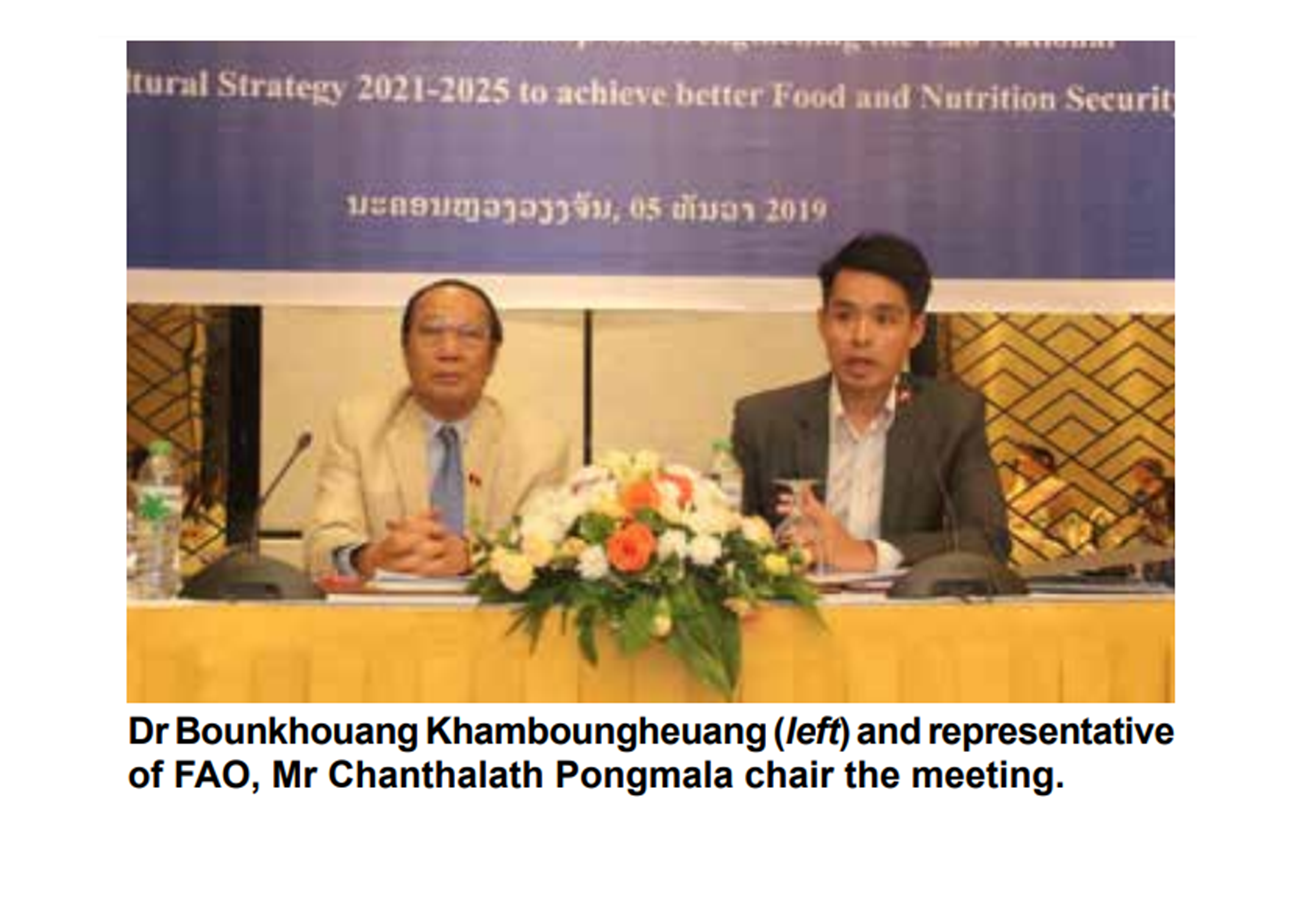
The ‘National Consultation Workshop on Strengthening the Lao National Agriculture Strategy 2021-2025 to Achieve Better Food and Nutrition Security’ held on Thursday in Vientiane focused on assessing lessons learned from policy implementation over the past five years, and defining goals for the next five years. “Since 2015, the Ministry has implemented the four priority interventions for agriculture out of the 22 priority interventions agreed under the National Nutrition Strategy and Action Plan (NNSAP) 2016-2025,” Deputy Minister of Agriculture and Forestry, Dr Bounkhouang Khamboungheuang said in his welcome speech at the workshop.
NNSAP has focused on the cultivation of diverse crops for nutrition, production of livestock as a source of protein for nutrition, processing and storage of food, development of value chains for buying and selling nutrition products, income generation from food, sustainable management of natural resources, for food and small-scale infrastructure. Dr Bounkhouang pointed out that since 2017 the ministry also had adopted the Nutrition-Sensitive Agriculture (NSA) approach, which has produced guidelines and a Community of Practice (COP) as well as a monitoring and reporting system. “A Mid-Term Review in 2018 showed that there are still weaknesses to be addressed; it is a work in progress. Yet we believe that the concept of NSA is highly relevant to mandate and intend making this concept more central in the tenth national development plan 2021-2025,” he said.
Dr Bounkhouang explained that reducing malnutrition remained a critical national policy priority, as the nation was committed to graduating out of Least-Developed- Country Status by 2025. Laos now has already reached most of the conditions, but high malnutrition rates remain a significant challenge to attaining all required indicators. Consequently, policy changes may help the Ministry of Agriculture and Forestry to be better able to reach nutrition outcomes. Representative of FAO, Mr Chanthalath Pongmala said while there were hurdles in improving nutrition in Laos concerned authorities were continuing to work together in an effort to implement effective policies. To achieve better food and nutrition security, Mr Chanthalath added that women’s workloads were a key constraint to better childcare and the adaption of improved food production practices.
The FAO will continue its support to the ministry through the Lao-PASAN programme over 2020- 2021 and is looking forward to building on nutrition improvement, especially relating to policy analysis.
Information source: Vientiane Times.


